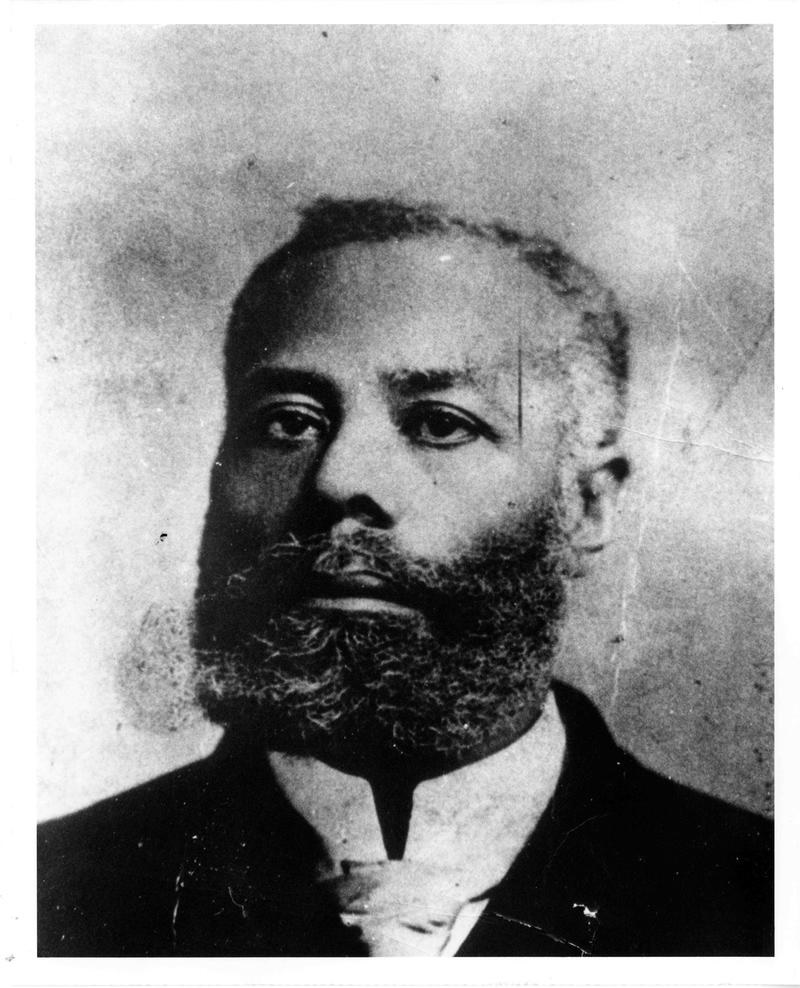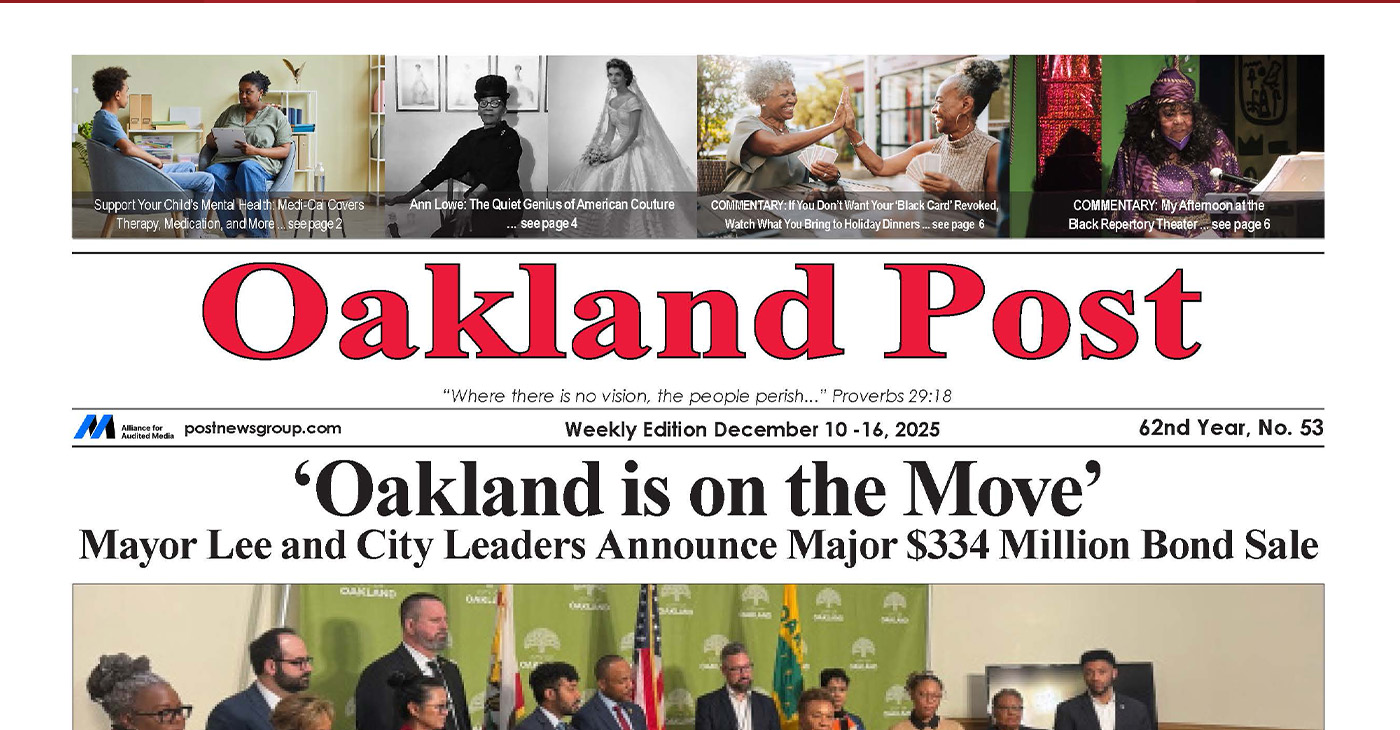Working as a fireman on the Michigan Central Railroad, one of Elijah J. McCoy’s tasks was to lubricate locomotive engine parts using a handheld can. Having been certified as a mechanical engineer and finding it difficult to locate work in that field, McCoy became bored, so he used the time on the job to think: If a mechanical device existed that could allow the proper amount of oil to drip into the moving parts of the engine, a train would no longer have stop every few miles to be manually lubricated.

Tamara Shiloh
McCoy then became curious about the challenges of such a device and began to develop and test his ideas for automatic lubrication. After two years of experimenting in what was a makeshift machine shop, he designed a special lubricating cup that could be fitted into the steam cylinders of locomotives as well as other stationary machinery was developed (1872).
This device spread oil evenly over a train’s engine while it was still moving, allowing trains to run for long periods of time without stopping. McCoy’s invention saved both time and money, and for it, he received the patent for what was called
Elijah McCoy, was an engineer who invented a lubrication system allowing trains to run faster. Public domain photo.
the Lubricator Cup on May 27,1873.
Within a short time, McCoy’s automatic lubricator, dubbed ;1he real McCoy,” to distinguish it from the less effective imitations that soon flooded the market, had been installed on locomotives across the country.
“McCoy’s invention was a small thing,” author Aaron E. Klein wrote, “but it speeded up the railroads, and faster railroad deliveries spurred the economic growth of a nation.”
McCoy was born in 1844 in Colchester, Ontario, Canada, to parents George and Emillia McCoy who had escaped slavery from Kentucky. The family returned to the states in 1847 and settled in Michigan.
Young Elijah often took things apart and put them back together. Noticing the ease of their son’s mechanical abilities, George and Emillia saved enough money to send Elijah, then 16, to Edinburgh, Scotland, to begin an apprenticeship in mechanical engineering. Training of comparable quality at that time was not available to Black people in either the United States or Canada. After completing his education, McCoy returned to the states, joining his family near Ypsilanti, Michigan.
According to Klein, McCoy spent the “long and frustrating months” searching for work in engineering before finally resigning himself to the menial job of a railroad fireman because “in those days, engineering was regarded as white men’s work.”
Continuing to refine his devices and design new ones, McCoy received more than 60 patents over the course of his life; 50 dealt with lubricating systems.
Finances to manufacture the lubricators in large numbers was unavailable, so McCoy assigned his patent rights to his employers or sold them to investors. Lubricators with the McCoy name were therefore not manufactured until 1920, when the Elijah McCoy Manufacturing Company was formed.
McCoy died in Detroit on October 10,1929. He was 85.

Tamara Shiloh
Tamara Shiloh has published the first two books in her historical fiction chapter book series,
Just Imagine…What If There Were No Black People in the World is about African American inventors, scientists and other notable Black people in history. The two books are
Jaxon’s Magical Adventure with Black Inventors and Scientists and
Jaxon and Kevin’s Black History Trip Downtown. Tamara Shiloh has also written a book a picture book for Scholastic,
Cameron Teaches Black History, that will be available in June, 2022.
Tamara Shiloh’s other writing experiences include: writing the Black History column for the Post Newspaper in the Bay area, Creator and Instruction of the black History Class for Educators a professional development class for teachers and her non-profit offers a free Black History literacy/STEM/Podcast class for kids 3d – 8th grade which also includes the Let’s Go Learn Reading and Essence and tutorial program. She is also the owner of the Multicultural Bookstore and Gifts, in Richmond, California,
Previously in her early life she was the /Editor-in-Chief of
Desert Diamonds Magazine, highlighting the accomplishments of minority women in Nevada; assisting with the creation, design and writing of a Los Angeles-based, herbal magazine entitled
Herbal Essence; editorial contribution to
Homes of Color; Editor-in-Chief of
Black Insight Magazine, the first digital, interactive magazine for African Americans; profile creations for sports figures on the now defunct PublicFigure.com; newsletters for various businesses and organizations; and her own Las Vegas community newsletter,
Tween Time News, a monthly publication highlighting music entertainment in the various venues of Las Vegas.
She is a member of:
- Society of Children’s Book Writers and Illustrators (SCBWI)
- Richmond Chamber of Commerce
- Point Richmond Business Association
- National Association of Professional Women (NAPW)
- Independent Book Publishers Association (IPBA)
- California Writers Club-Berkeley & Marin
- Richmond CA Kiwanis
- Richmond CA Rotary
- Bay Area Girls Club
Tamara Shiloh, a native of Northern California, has two adult children, one grandson and four great-grand sons. She resides in Point Richmond, CA with her husband, Ernest.
www.multiculturalbookstore.com



























































